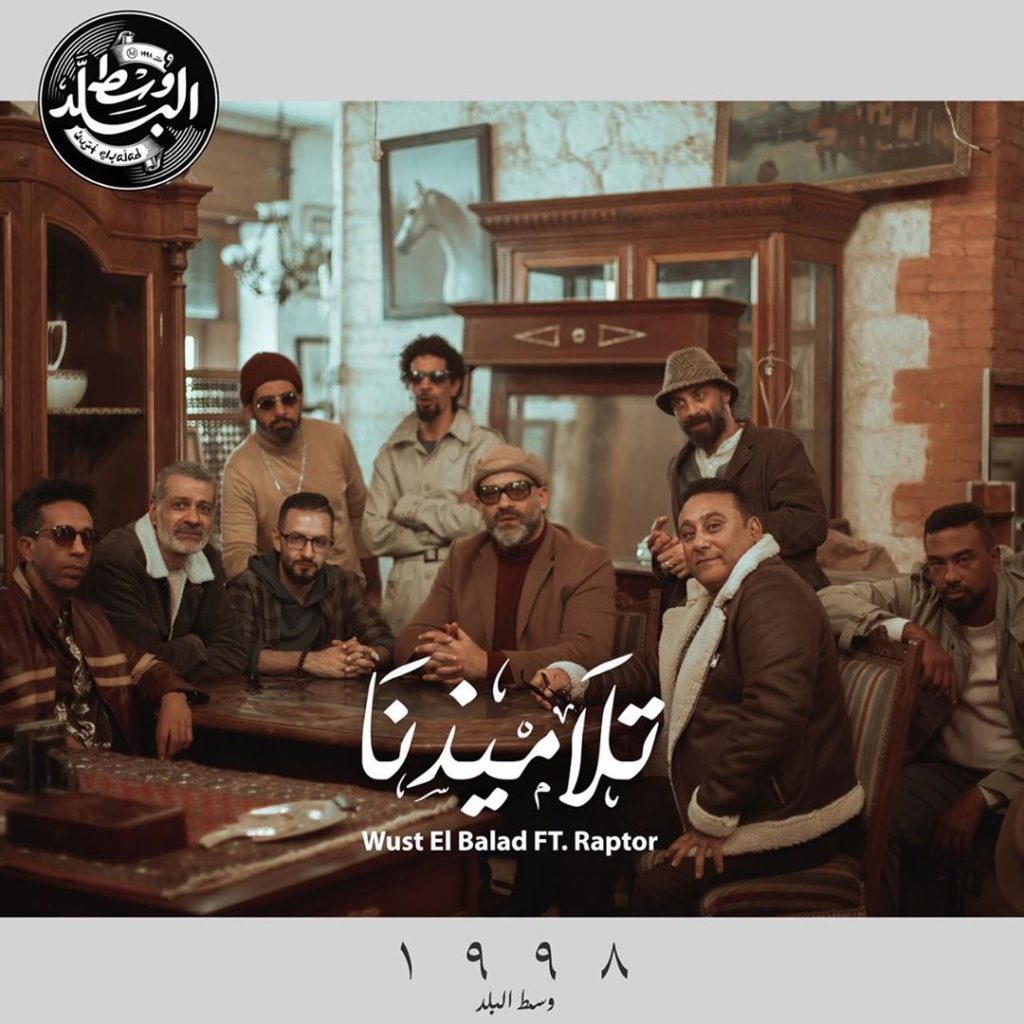Last weekend, the music scene in Egypt saw an interesting collaboration between one of the pioneering independent bands in the country, Wust El Balad, and rising rap stars, Raptor. They dropped a track called Talamizna last Friday and the song is going viral, with more and more appreciation being shown for it day after day.
Although the song combines different elements, they all sync together perfectly. Hany Adel reciting quotes from Microbuses and tuk-tuks, the integration of an Arabic poem by Hazem Wefy, and definitely Raptor’s amazing rapping skills, all made the song the success that it is. Not to mention, the awesome music and artistic video! We asked the band some questions after the success of the song, and here’s what they said.
What’s the inspiration behind your latest track?
The language of the street, words written on the microbuses, tuk-tuks, and walls. It’s inspired by the trending slang and the language that real people use in the streets. It’s also inspired by the book of the renowned poet Hazem Wefy, “Harah w Heita w Arabeya”.
How did the collaboration come to life, from idea to execution?
Wust El Balad is the first Egyptian band to collaborate with rappers, starting from our track with Y Crow, and then with Shahine. This year, it was Raptor, with his special style and swift flow. I saw his music video “Bahazar Ma’ak”, and I was showing it to everyone; adding that this guy will change the rap scene in Egypt. When the chance presented itself, the whole band decided that he’s a great choice for a new collaboration.
What do you think of the emerging rap scene in Egypt?
The rap scene evolved immensely, not just in Egypt but in the entire Arab World. The thing is that in Egypt, people very recently acknowledged and appreciated the rap scene, even though there were some popular examples in the past like the music of Ahmed Mekky and MTM. But in the past couple of years, the scene took its deserved place; because of its topics, language, music, and how it gives a new medium for the youth to express themselves.
People are asking about why you decided to use autotune in your latest track?
We wanted to use autotune because we wanted the song to be listened to and played everywhere on the streets. We wanted it to be played in the microbuses and tuk-tuks that we used the quotes from, but for that to happen, we needed it to be a bit more relatable to the music they hear. The people are used to hearing autotune in the songs they hear, whether it’s ‘mahraganat’ or rap and trap songs.
What people need to understand is that literally all the songs they listened to underwent autotune at some point; it’s just a technology that removes vocals and music that goes out of tune. Talented sound engineers in Egypt just do it very professionally to make it seem natural.
However, in this song, we used it in a clear way because it’s the style of the song and it appeals to the people we wrote the song for. The first singer to use autotune in that manner was Cher in her song Believe, and it was very popular when it was released back in 1998.
But back to why we used the autotune. It was because we decided to use the street language and the voice of the people that we belong to and represent, as the entire band is from Bolaq, Abdeen, Masr El Kadeema, Abbaseya, and El Max (Alexandria).
The challenge was to make this exact song be in line with the identity of Wust El Balad, and we’re happy that we succeeded in doing so.
The last thing I want to mention is that we don’t have always to stick to our comfort zone and express ourselves, in the same way, to keep people pleased. We’ve always been into presenting something new and we’ll keep on delivering it.



